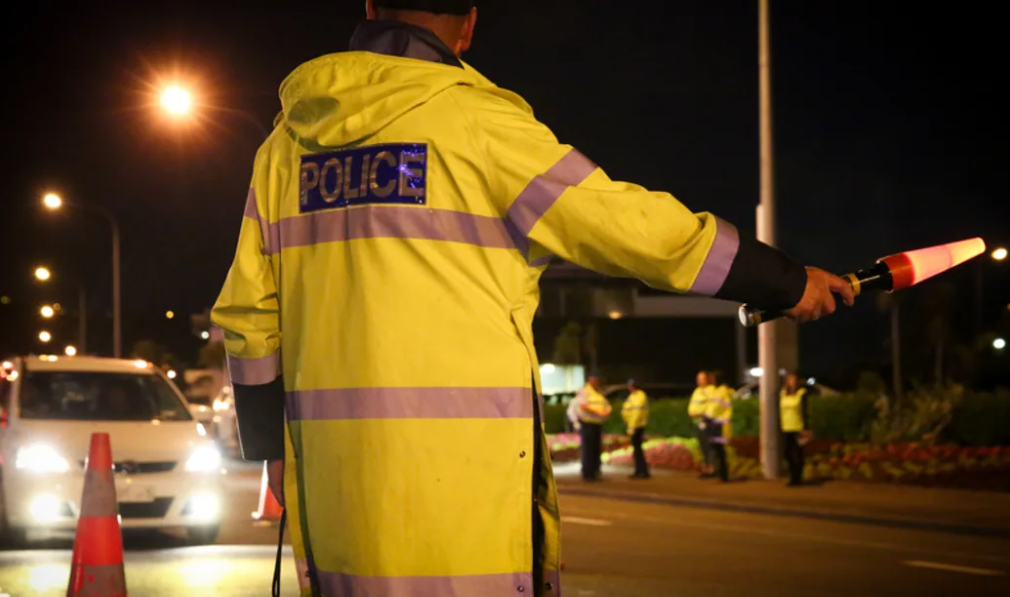Politics
New Zealand Police Face Major Investigation for Falsifying Breath Tests

New Zealand’s police force is currently under scrutiny as an investigation reveals that approximately 120 officers may have been involved in falsifying alcohol breath tests across the country. This troubling situation follows the discovery that around 30,000 tests were either “falsely or erroneously recorded.” The irregularities came to light after police implemented a new algorithm to analyze testing data, which highlighted discrepancies that previous devices could not identify.
Concerns Over Leadership and Culture
Barbara Buckett, a prominent employment lawyer in New Zealand, expressed her astonishment at the scale of the investigation. “I have never seen anything on the same scale,” she stated. Buckett emphasized that the widespread nature of the allegations suggests deeper systemic issues within the police organization. She stressed the need for the police to examine its leadership and culture, stating, “There must be something there that police have to look to in terms of its own leadership and its own culture.”
According to Buckett, the allegations raise important questions about accountability and the environment that may have contributed to such behavior. “What seems to be unfathomable is the number and the geographical spread of it,” she noted. The implications of this situation are significant, as the conduct may constitute serious misconduct, warranting disciplinary action that could include summary dismissal.
Implications for Trust and Accountability
The investigation has led to discussions about the potential consequences for the officers involved. Buckett pointed out that the trust and confidence essential in the employment relationship are at risk if the allegations are confirmed. “Every officer’s case will have to be assessed individually considering intent, context, and any mitigating factors,” she added. This process is crucial for ensuring that fairness is maintained throughout the investigation.
On Tuesday, when asked about the potential motives for falsifying tests, a police spokesperson suggested that some staff may have inflated the number of tests conducted to meet targets. Buckett remarked that if the conduct was as “blatant” as suggested, it indicates an intention to deceive, which would breach the duties of good faith and honesty owed by employees, especially in public service roles.
Interestingly, none of the officers involved have been suspended from duty. Buckett interpreted this as a signal from the police that they do not view the situation as warranting immediate removal, suggesting that the organization still believes the employment relationship can be salvaged, even in light of alleged misconduct.
If any officers face dismissal, the repercussions could be severe. Buckett explained that such a decision would have lasting effects on their future employment opportunities, particularly in roles requiring public trust and security clearance. “I doubt whether they would get another job with this sort of background,” she stated, highlighting the potential long-term consequences of the investigation.
Jennifer Mills, another employment law specialist, emphasized the high level of trust placed in police officers. She noted that falsifying alcohol breath tests would likely be seen as a significant breach of this trust and the values upheld by the New Zealand Police. The investigation will seek to determine if the actions of the officers were deliberate or unintentional. Mills suggested that given the number of staff involved, it may be more likely to be categorized as unintentional misconduct, which could result in warnings or additional training rather than outright dismissal.
The investigation into the New Zealand Police’s handling of alcohol breath tests raises critical questions not only about accountability and transparency but also about the integrity of the entire policing system in the country. As the investigation unfolds, it will be important to observe how the police leadership responds to these serious allegations and the steps they take to restore public trust.
-

 World3 months ago
World3 months agoTest Your Knowledge: Take the Herald’s Afternoon Quiz Today
-

 Sports3 months ago
Sports3 months agoPM Faces Backlash from Fans During Netball Trophy Ceremony
-

 Lifestyle3 months ago
Lifestyle3 months agoDunedin Designers Win Top Award at Hokonui Fashion Event
-

 Sports3 months ago
Sports3 months agoLiam Lawson Launches New Era for Racing Bulls with Strong Start
-

 Lifestyle3 months ago
Lifestyle3 months agoDisney Fan Reveals Dress Code Tips for Park Visitors
-

 World3 months ago
World3 months agoCoalition Forms to Preserve Māori Wards in Hawke’s Bay
-

 Health3 months ago
Health3 months agoWalking Faster Offers Major Health Benefits for Older Adults
-

 Politics3 months ago
Politics3 months agoScots Rally with Humor and Music to Protest Trump’s Visit
-

 Top Stories3 months ago
Top Stories3 months agoUK and India Finalize Trade Deal to Boost Economic Ties
-

 Entertainment3 months ago
Entertainment3 months agoExperience the Excitement of ‘Chief of War’ in Oʻahu
-

 World3 months ago
World3 months agoHuntly Begins Water Pipe Flushing to Resolve Brown Water Issue
-

 Science3 months ago
Science3 months agoNew Interactive Map Reveals Wairarapa Valley’s Geological Secrets









